Egyptian writer Karoline Kamel divulges the joy of exploring Egypt's vibrant flea markets where a serendipitous encounter with a Barbie doll helped her find closure and satisfaction for an enduring childhood longing.
During every visit to the Saturday market, with my seven-year-old nephew, to buy him a new toy, I find myself involuntarily dictating what he should get. In a lucid and succinct manner that brooks no debate, I explain that I have an exceptional knack for making the right choices. I neither let him browse in peace nor do I pay any attention to his rebuffs. Instead, I launch into listing all the advantages that come with my choice. In most cases, he remains firm and insistent that he would rather do things his own way. Despite setting his sights on one or two choice models, he continues his valiant search, with an admirable shrewdness engineered so as not to upset me, for I am, ultimately, the financier of this expedition. However, I recall that during our last outing, he turned to me, quite exasperated and said: Karo! If you like this toy so much, why don’t you buy it for yourself and then you can play with it?!
I remember laughing at his cheeky yet endearing spontaneity. Not only did it tickle my heart strings but proved the signal I had needed, to cease my errant behavior. I apologized for encroaching on his freedom and left him alone to wander around, while I took a seat by the salesman at the front of the store where, still upset by what I had done, I gave myself a proper scolding.
As I sat waiting, my thoughts wandered to my childhood, and all the toys I had never had. We didn’t have much then, which meant that us children got not what we desired, but rather what money, stretched as it already was, could bring us. Sadly, most of the playthings my siblings and I owned were hand-me-downs from well-to-do relatives, toys that their children had gotten bored with and since discarded.
My nephew soon came trundling back brandishing a toy certainly not to my taste. Nevertheless, I congratulated him on his choice. I paid and we left.
Over the years, I’ve developed a habit of visiting second-hand markets. Every Saturday when I’m in Egypt, I make my way to the country’s oldest market, Diana Cinema, adjacent to the famous Emad El Din Street in downtown Cairo. Once there, I’m greeted with a scene in which every inch of the ground appears covered with the wares of dozens upon dozens of vendors who offer, as Egyptians succinctly say, everything “from a needle to a rocket” — from suitcases that still bear their airport tags, rusted cutlery that have definitely seen better days, piles of eyewear that have long lost their luster, branded watches none of which work, vases made of clay, China and glass, decorative pieces that tell of a bygone era when Egyptians decorated the walls of their homes with tableaus, handmade carpets, and motifs depicting Chinese and Japanese mythology, and other knickknacks and junk too many to count.
I have never been a fan of fishing, for it is a practice that requires patience — a skill which I do not possess. However, with my regular outings to the Saturday market, I have found that patience pays off and leads to joy, particularly when encountering the unexpected. Although I no longer go to the market with any specific thing in mind, I do keep a keen eye out for old printed manuscripts and letters, and whenever I return home with my prized paper booty, I commend my newly acquired patience and meticulousness in searching among the exhibits.
As I rummage through the scores of photographs I have amassed, I am deeply moved by the lost and scattered histories they hold: the weddings, birthdays, summer vacations, and family gatherings all now relegated to the sidewalks, privy to the hands of the highest bidder. I am seized by an irrational fear that, one day, my belongings too will end up lying on a filthy sheet, exposed to the scrutiny of strangers.
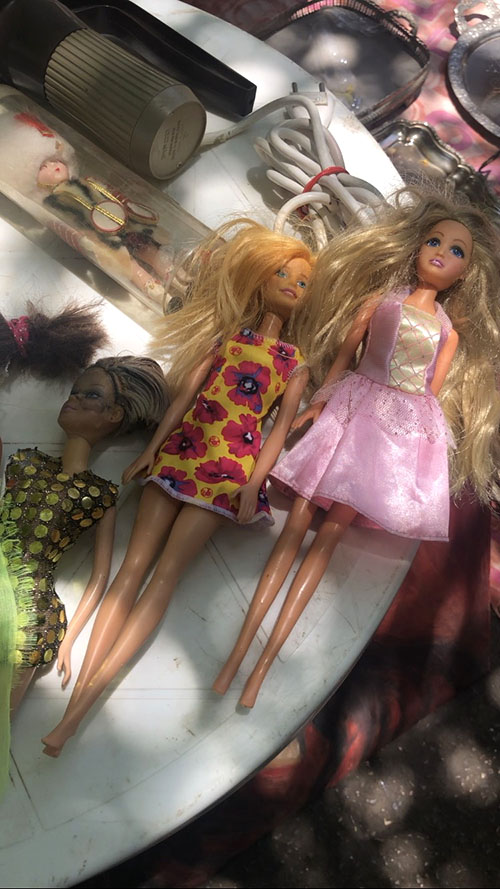
When I was growing up, in the nineties, Barbie was the coveted doll. The svelte model with her long lashes, cascading blond hair, and vast wardrobe, sat supreme on the throne of all playthings. To me, she was the most beautiful thing I had ever seen and the various knock offs that flooded the Egyptian market paled in comparison. And yet for all of that, I never owned one, and she was forever absent from my childish tea table whose guests included a mishmash of playthings, ranging from a stuffed frog seated beside a classic Cadillac and some chess pawns and knights leaning precariously next to various farm animals. In the end I reasoned that it was probably for the best that Barbie was not present at my absurd tea party as she wouldn’t have fit in beside the tea sippers — the knight might have flirted with her, or the frog might have leapt up for a kiss that would turn him back into a prince. And so it was that I found refuge in my fertile imagination to make up for the paucity of my toy box.
This time I found Barbie at the Saturday market. A number of her namesake were strewn haphazardly across a table, looking exhausted and neglected, their luster and glamour washed away. The sadness I felt in that encounter was a far cry from my imagination’s Barbie, and the experience vastly removed from my childhood recollections of her standing tall inside her cardboard box decked out in her glamorous adornments and sparkly accessories. She was just like everything else there: a discarded, neglected and abandoned consumable commodity. And yet what is most unexpected and surprising is that despite the child in me that has never stopped yearning for her own Barbie, the adult me, who can now afford the latest model, isn’t the slightest bit earnest. Coming face to face with these deserted models, their shoes now lost, their hair dull and faces stained with crayon mark smears, remind me I shall never be a child again. Owning her now would merely be to fill a void in my soul, nothing more.
I moved away to peruse the other stands. But, despite the hustle and bustle, it felt as though Barbie were calling out to me, urging me to provide her with a retirement home where she could spend her remaining days as a decorative piece in the house of a woman in her forties who still harbored an inner girl, her memories tainted with the bitter circumstances that had prevented her from obtaining the toys she had longed for.
I blocked my ears to the sounds, but it seemed fate was not done with me. I had stopped in front of a stack of old magazines dating back to the 1950s. Flipping through them, I realized the articles were endorsing the concept of marriage as a significant undertaking of national importance that every young male and female should invest in. The accompanying photos were of women in bridal gowns sitting in newly furnished homes, radiating stability and contentment. The entire stack resembled a grand wedding extravaganza and I resolved to obtain as many of those magazines as possible, and with luck on my side, I did.
Loaded with my new purchases and a handcrafted genuine South African leather bag adorned with intricate patterns, I felt like I had scored well. However, despite this, Barbie’s voice was still ricocheting in my ears. Succumbing to the insistence of the little girl within me, I paused and reconsidered what harm it could do to return to the Barbie table and buy just one doll that I would take home, clean up, and lay beside me on my bed, finally fulfilling a life-long dream.
I had reached a considerable distance before finding myself standing in the street engaging in a firm dialogue with the obstinate inner child residing within me. In an adult voice, I calmly and rationally explained to her that the cats in my house wouldn’t allow Barbie to live out her retirement in peace, nestled next to me. Between them, they would simply tear her to bits – the remains of which I would have to gather up one by one to toss in the garbage. It was better, and certainly more sensible, for another child to have her and to cherish her and for the two of us to keep her flame burning between us. Afterall, the adult me reasoned with her, many dreams were destined to remain as such anyways.




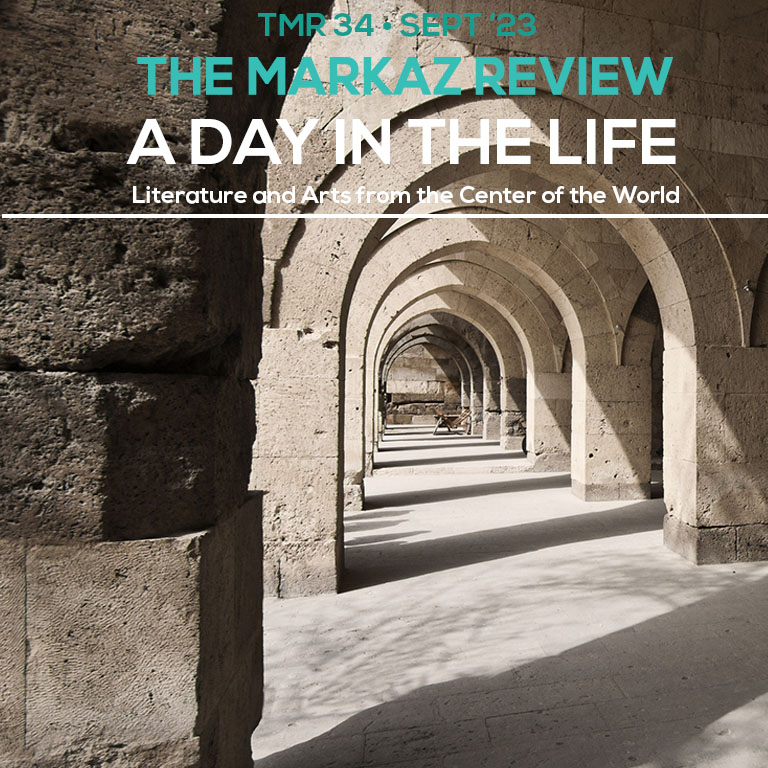



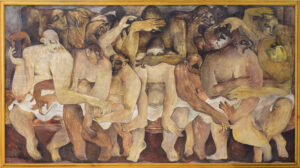




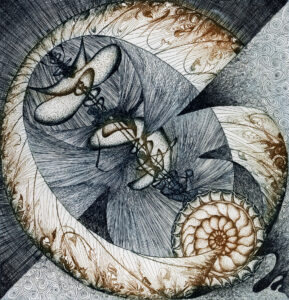




























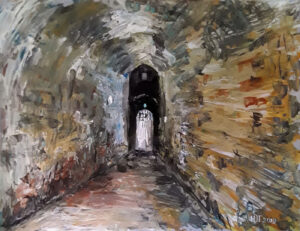


















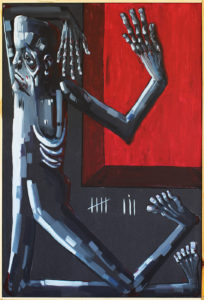



















Beautiful and very touching.